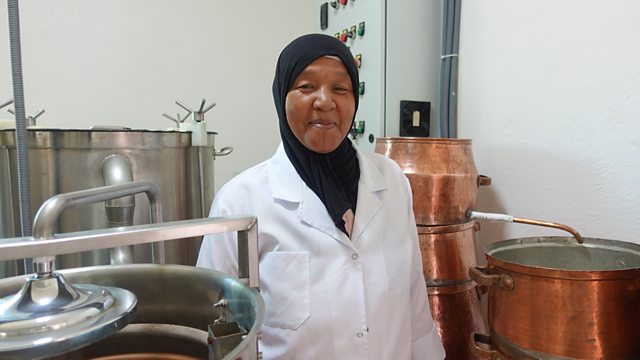The ark of the dry lands
How a seed bank in Morocco is protecting around 150,000 different seed-types and using them to create new varieties resistant to drought or disease, without pesticides.
Researchers in Morocco are developing dry-land agriculture at ICARDA (the International Center for Agricultural Research in the Dry Areas). It is home to a gene bank, in which around 150,000 different seed-types are kept in perfectly calibrated cold vaults, and duplicated to protect them from fire, earthquake and war. They are used for the creation of new varieties - such as wheat or lentils resistant to drought or disease, without pesticides. The gene bank is a public good - anyone, anywhere, can request seeds free of charge.
Laaziza Atmani, head of the Al Amal women’s farming co-operative in the middle Atlas Mountains, uses ICARDA seeds and expertise to develop her couscous business. ‘Setting up the co-op changed our lives,’ she says.
Some of the ICARDA seeds were collected originally in the 19th Century, at the dawn of genetic research. ‘Our oldest is a barley, collected in 1884, in Norway,’ says Zakaria Kehel, who takes care of the seed bank. Others are of wild varieties such as the ancestors of grain that grow freely in the "Fertile Crescent" of modern Iraq, Lebanon, Palestine, and Syria. These wild plants, or landraces, have been collected from mountains and roadsides over decades by scientists like Dr Ahmed Amri.
Presenter: Aidan Tulloch
Sound engineer: Mike Woolley
Producer: Monica Whitlock
A Storyscape production for ÃÛÑ¿´«Ã½ World Service
Last on
Broadcasts
- Thu 10 Jul 2025 01:32GMTÃÛÑ¿´«Ã½ World Service
- Thu 10 Jul 2025 08:32GMTÃÛÑ¿´«Ã½ World Service
- Thu 10 Jul 2025 19:06GMTÃÛÑ¿´«Ã½ World Service except East and Southern Africa & West and Central Africa
- Sat 12 Jul 2025 16:32GMTÃÛÑ¿´«Ã½ World Service Online & News Internet only
- Sat 12 Jul 2025 23:32GMTÃÛÑ¿´«Ã½ World Service except Americas and the Caribbean, East and Southern Africa & West and Central Africa
 Sun 13 Jul 2025 04:32GMTLive News
Sun 13 Jul 2025 04:32GMTLive News- Sun 13 Jul 2025 04:32GMTÃÛÑ¿´«Ã½ World Service except East and Southern Africa
- Sun 13 Jul 2025 13:06GMTÃÛÑ¿´«Ã½ World Service News Internet
- Sun 13 Jul 2025 22:32GMTÃÛÑ¿´«Ã½ World Service East and Southern Africa & West and Central Africa only

